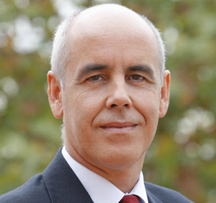Food Systems Podcast 25
In discussion with Humberto Delgado Rosa Podcast summary
Thursday, Jun 24, 2021
Achieving biodiversity goals is a necessity
Both the UN and the EU have far-reaching and ambitious biodiversity goals – but are they achievable? We talked to Humberto Delgado Rosa, the Director for Natural Capital at DG Environment in the European Commission, who gave us an upbeat assessment of what can be done. Read our short podcast summary below, or dive into the full 22-minute Food Systems Podcast for much more.
The UN Biodiversity Summit has the goal that in 2050 all world ecosystems are restored, resilient and adequately protected. Is this realistic and will there be an enforcement mechanism?
It is certainly a very necessary goal. If necessity brings in realism, we will have to do it. It is hard… but there are many benefits to humankind. I would certainly expect a new deal for nature that would pave the way towards a very different state in 2050. I don’t think the approach would be around enforceability. It should be around measurement, reporting, verification.
The EU’s 2030 biodiversity strategy has a target of 10 percent of land and 10 percent of sea under strict protection. Can the Commission make sure member states implement this?
One of the targets is 30 percent protected areas in European land and water, one third of which is strict protection. For the overall protected areas, we can count forest and Natura 2000 areas. We are working with the member states on a definition of strict protection. We will count on their collaboration and we will measure and monitor.
The EU also has a 25 percent target for organic farming, which will also help biodiversity: can this one be achieved?
It is ambitious but there are many indicators that show the potential for organic farming to grow remains huge. We have the instruments – the Common Agricultural Policy, the strategic plans, the money from research for agriculture devoted to organic farming. Europeans do equate healthy food with naturalness, and organic farming is dear to many consumers’ hearts.
‘Natural’, unlike organic, is not a protected term in the EU. Should we create more protected categories so consumers know what they’re buying?
Labeling is pretty important for consumers. We have in the pipeline what we call a green claims initiative, which aims to settle the process. It’s about more regulated approaches to labeling so that consumers actually know they can trust whatever green label they see in front of them.
There is an ambition to plant three billion new trees by 2030. But how will the Commission and the member states ensure tree management, so that these trees reach maturity?
There will be a working document accompanying the European Forest Strategy to help organize and stimulate this pledge. To plant a tree is not necessarily good. It depends what tree you plant, where you plant it and how you do it, so we will focus on the right tree in the right place for the right purpose.
Finally, if you could give one idea or one policy suggestion to make a more sustainable food system overall, what would it be?
Humans react very well to some indicators and one of them is money in their pockets. What we need overall is to make unsustainable practices more expensive and give relief for sustainable practices. Whenever there’s a political opportunity to use incentives, bringing the hidden costs of production into prices will get you somewhere.
We see a lot of attention, particularly among the young, to healthy diets. Public policies that help bring awareness of what is healthy and environmentally sustainable food is another approach we should have in the mix.
If you have found this short summary interesting, there’s lots more to hear in the full 22-minute conversation. It is available now on iTunes, Podbean or Spotify or on this website.

Humberto Delgado Rosa
Humberto Delgado Rosa is the Director for Natural Capital, DG Environment, European Commission. Previously he was Director for Mainstreaming...see more
